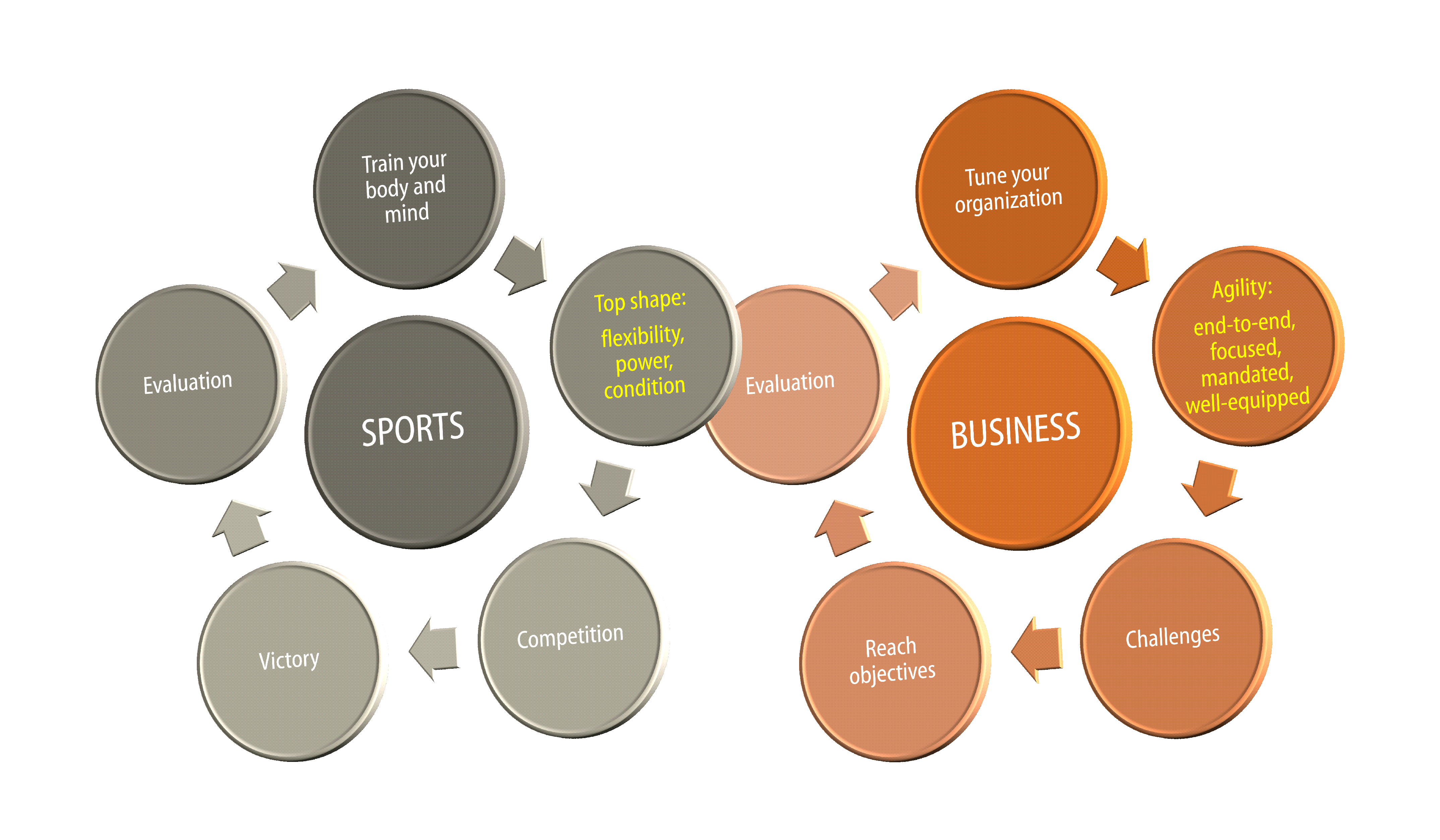When studying the evolution of animal populations, it soon becomes clear that agility, or the ability to adapt to ever-changing conditions, makes the difference between survival and extinction. Likewise, agile businesses, with the strong ability to adapt to new conditions and change their direction accordingly, have the highest chance of survival and success. As agility is an essential business lever, your organization should be tuned for it.

You want to be in top shape for an important match, don’t you?
In sports competitions, you need to be in top shape to compete and maximize your chances for victory. Likewise, your business is in rivalry. Your business too needs to be in top shape to maximize its chances for survival. Just like in sports, you need to evaluate permanently, to find weaknesses and opportunities for improvement and to train and tune to become even better. While it requires your efforts and perseverance, a good coach can help you and do wonders.

Agility more than ever required
While the need for agility has always been there, the skill becomes all the more important as the speed and impact of changes increase. Over the last few decades, companies have increasingly been confronted with more disruptive trends:
- Easy access to information: more transparent markets (e.g. internet)
- Easy access to goods and services (e.g. e-commerce)
- Economies becoming service-based rather than production-based (e.g. renting and partial use gaining importance over ownership)
- Cohesive Business Ecosystems with sticky customers or prospects
- Disruptive propositions in the field of Digital Transformation as enablers came to fruition
- New and revised regulatory and legal obligations
- War for talent: talented and innovative people want to work for agile organizations
Embedded impediments
Companies with a classical multilevel hierarchy, with power concentration at the top and strict procedures for decision taking, entail restrictions on creativity, innovation and speed and brake as such the value creation on the floor. These companies are characterized by silos, with own priorities and targets, making parts of a service or product, but not creating customer value on their own.Appropriate action to unlock value creation
A change to mandated and well-equipped teams is required, focusing on customer value creation from end-to-end, with (servant) leadership creating the context to do so.
The digital era requires agile companies, having the competency to adopt rapid change.
Phibonacci has successfully implemented agile organizations and has been creating optimal customer value in such contexts. In the project search section, more information can be found regarding its Business Agility expertise.
Often changes to the system landscape are required to enable for an agile organization. As such agile organizations both consume and facilitate digital transformation.
Business agility is the essential business lever resulting from an agile organization. Business agility is a permanent necessity and therefore the continuous improvement of the agile organization, in order to optimise the business agility, is embedded in the methodology.

Erwin Verdonck, managing partner of Phibonacci, has been engaged as Product Owner a.i. and has gained 3 certifications from scrum.org:
How can we help you?
We are happy to discuss what we can do for you. Are you interested in one or more of the following?
- Improving your adaptability and adaptation speed
- Reducing your time-to-market
- Boosting your ability to innovate
- Making your organization more agile
- Improving your customers’ experience
- Capitalizing on unrealized customer value
- Exploring the opportunities
- Temporary resources to get the agile teams up and running or to boost your agile transformation
- Expanding your agile teams temporarily to reduce the product backlog
- Transforming your system landscape to enable for business agility
Let us know.








